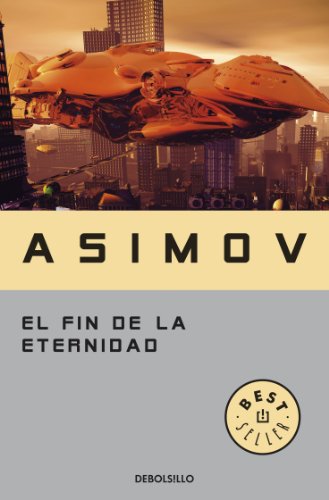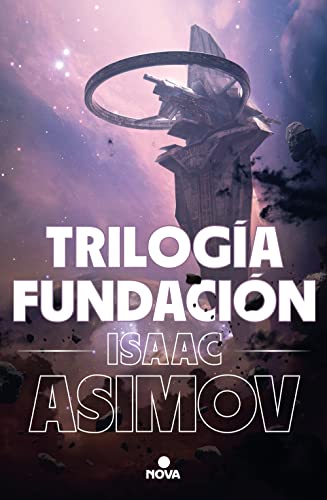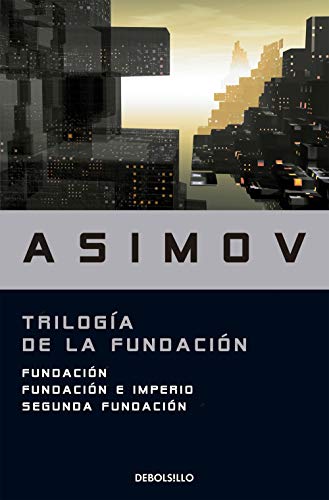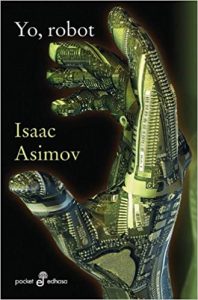And we come to the greatest of the science fiction narrative: Isaac Asimov. Having spoken before about authors classics like Huxley o bradbury, great exponents of dystopian science fiction, we reach the genius who cultivated everything in this scifi genre, elevated to the altars at times and reviled by literary purists at other times.
Here is one of the latest reissues of his essential foundation trilogy. A fascinating edition beautifully illustrated…
Asimov was already pointing out ways due to his own academic training, in which he achieved a doctorate in biochemistry. Scientific foundations on which to ponder were not lacking in the Russian genius from Brooklyn.
Before turning twenty, Asimov had already published some of his stories between the fantastic and the scientific in magazines (a taste for the story that he spread throughout his life and that they have given for a multitude of compilations)
His very extensive work (also diverse because he made his forays into detective, historical and of course, informative works), has given much, being the cinema a great recipient of his proposals. Many of the best cifi movies we've seen on the big screen bear his stamp.
Deciding, then, on his three best books is not going to be an easy task, but here I go.
Top 3 Recommended Novels by Isaac Asimov
Foundation
A work on which a large part of an author's creation pivots cannot but rise to the top of his literary production. You can start with it and continue immediately until you finish with his trilogy or you can later look for some other combined works to get a broader perspective of the author.
Although knowing the work, it is more than likely that you launch yourself to read everything later about the foundations that await you at the limits of the known galaxy. I, just in case, I refer here to the joint volume ...
Summary: Man has dispersed through the planets of the galaxy. The capital of the Empire is Trantor, center of all intrigues and symbol of imperial corruption. A psychohistorian, Hari Seldon, foresees, thanks to his science founded on the mathematical study of historical facts, the collapse of the Empire and the return to barbarism for several millennia.
Seldon decides to create two Foundations, located at each end of the galaxy, in order to reduce this period of barbarism to a thousand years. This is the first title in the tetralogy of foundations, one of the most important in the science fiction genre.
I robot
Asimov's great passion for robotics is generally known, demonstrated in many of his works and extrapolated to robotics science in his Asimov's Laws. In this, his first compilation of stories already introduces us to his passion for artificial intelligence and its technological and / or ethical limits.
Summary: Isaac Asimov's robots are machines capable of carrying out a wide variety of tasks, and they often pose problems of 'human behavior' for themselves.
But these questions are solved in I, robot in the field of the three fundamental laws of robotics, conceived by Asimov, and which do not stop proposing extraordinary paradoxes that are sometimes explained by malfunctions and others by the increasing complexity of the functions. 'programs'.
The paradoxes that arise in these futuristic stories are not only ingenious intellectual exercises but above all an inquiry into the situation of modern man in relation to technological advances and the experience of time.
The end of the eternity
The future ... that great question in which only fantasy or science fiction can dive under the waters of imagination. We do not have absolutely certain answers about the future, but science fiction in general and authors like Asimov in particular, invite us to know what it can become ...
Summary: In the XNUMXth century, Earth founded an organization called Eternity, sending its emissaries to the past and future to open trade between different eras, and to alter the long and sometimes tragic history of the human race.
The project consisted of only the best and brightest exponents of each century: people who put their own lives aside to dedicate themselves to serving others.
For men like Andrew Harlan, Eternity represented much more than work: it was their life, their lover, their children, their family.
But when he traveled to the four hundred and eighty-second century, he couldn't help but fall madly in love with a beautiful non-eternal named Noÿs Lambent.
Now hunted by an all-powerful bureaucracy, Harlan and his beloved escape between the centuries, seeking to break whatever rules are necessary to preserve their future together. Even if they must destroy Eternity itself ...




